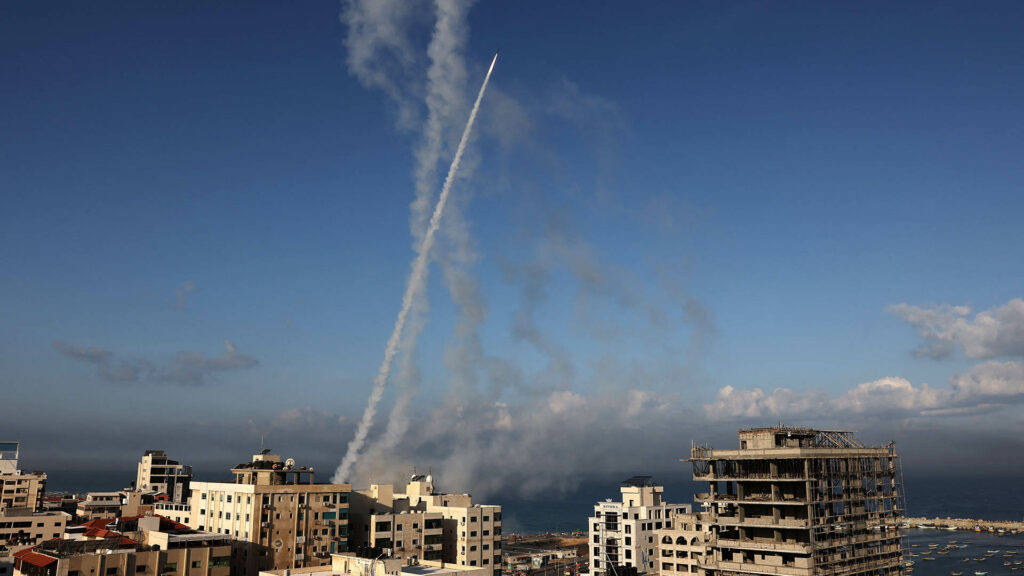Trending: Here are some Business Statistics and Trends to know
|
Getting your Trinity Audio player ready...
|
The recent attack on Israel by Palestinian militants Hamas has raised concerns about potential repercussions in global oil markets. Energy experts believe that while crude oil prices may experience a temporary surge, the overall impact should be limited, provided the conflict does not escalate further.
The Conflict
Over the weekend, militants from Hamas, an organization designated as a terrorist group by the U.S., European Union, and the U.K., executed a multi-pronged infiltration into Israel via land, sea, and air during a significant Jewish holiday. This incursion occurred shortly after these militants launched thousands of rockets into Israel from the Gaza Strip.

In the wake of these events, Israeli Prime Minister Benjamin Netanyahu has reported incidents of civilian abductions, including women, children, and the elderly, along with tragic fatalities in their homes.
Israel Enters Offensive Phase with Unyielding Resolve
Israeli Prime Minister Benjamin Netanyahu declared the commencement of the offensive phase, emphasizing an unwavering commitment to its objectives. He pledged to exact a significant toll on the enemy within the Gaza Strip.

Furthermore, on Saturday, Israel implemented a supply cut-off, affecting electricity, fuel, and goods to the densely populated territory inhabited by 2.3 million Palestinians.

Furthermore, on Saturday, Israel implemented a supply cut-off, affecting electricity, fuel, and goods to the densely populated territory inhabited by 2.3 million Palestinians.
As of the time of this report, the situation had resulted in tragic casualties on both sides. According to NBC News, at least 250 Israelis had lost their lives, with over 1,860 individuals injured, including 320 in critical condition. The Palestinian Health Ministry reported 256 fatalities and 1,790 injuries in Gaza.
Knee-Jerk Surge in Crude Prices Anticipated
Vandana Hari, CEO of Vanda Insights, has suggested that "we may see a knee-jerk surge in crude prices when markets open on Monday."
This surge is likely due to a risk premium that will be factored in by default until the market is convinced that the situation won't trigger a chain reaction affecting Middle East oil and gas supplies.
Escalation of Conflict and Regional Implications
While both Israel and Palestine are not major oil producers, the conflict is situated in a region of strategic importance for oil production. Analysts have warned that any escalation could have broader implications for the oil market.
Iman Nasseri, Middle East Managing Director of energy consultancy Facts Global Energy, emphasized that the impact on oil prices would remain limited unless the conflict swiftly expands into a regional war involving other parties like the U.S. and Iran.
Oil Production in the Region
Israel possesses two oil refineries with a combined capacity of nearly 300,000 barrels per day.
However, the country's crude oil and condensate production are virtually non-existent, according to the U.S. Energy Information Administration. The Palestinian territories do not produce any oil.
Short-Term Impact on Oil Supply
French businessman and hedge fund manager Pierre Andurand stated that, as the Levant is not a major oil-producing region, the war is unlikely to affect oil supply in the short term. He noted that while a large oil price spike is not expected immediately, it could eventually impact supply and prices.

Potential for Regional Hostilities
Despite these assessments, Vandana Hari cautioned that the ongoing Israeli-Palestinian conflict does have the potential to escalate into broader regional hostilities. The recent actions of Lebanon's Hezbollah militant group launching attacks on the Lebanese-Syrian border highlight the fragility of the situation.
While the immediate oil market impact may be contained, the evolving dynamics in the region and any potential disruptions to the oil supply chain will continue to be closely monitored by energy experts and market participants.



